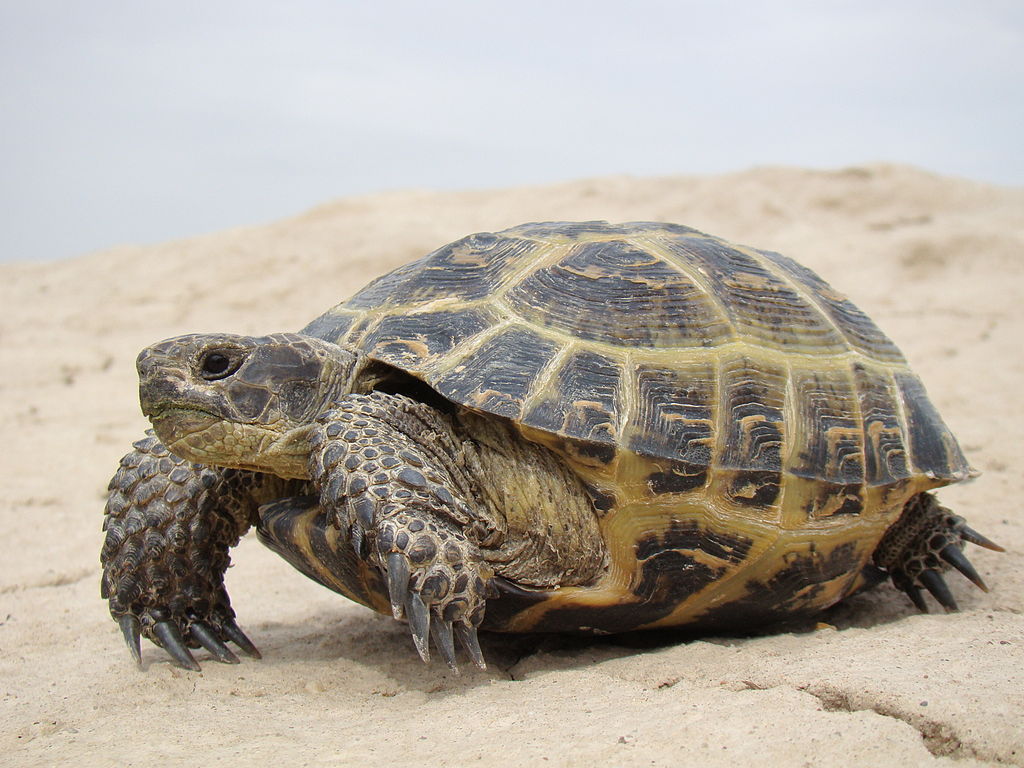Today was the launch date in 1968 for the first Earthlings who orbited the moon.
If you’re thinking of the Apollo 8 astronauts, Frank Borman, William Anders and James Lovell, well, technically they were the first humans to orbit the moon.
A couple of months before, two tortoises made the trip.
While the U.S. had pulled ahead in the race to the moon by the late 1960s, the Soviet Union was still in the race.
And so, as the Apollo program prepared to send three humans to orbit the moon and return, the Soviets worked on a moon mission containing non-human living things, called Zond 5.
The space travelers included a flowering plant, algae, fruit fly eggs, a bacteria culture, and two Russian tortoises (that’s the nickname for the species, though they’re not quite Russian).
Zond 5 took off, made it to the moon, took photos of its lunar orbit, and then made it all the way back, touching down in the Indian Ocean.
The two unnamed tortoises were in good health for the most part.
They did lose about 10 percent of their body weights, which is not uncommon for space travelers.
But the Soviet scientists also didn’t feed the tortoises before the launch, in case food skewed their readings.
So that may have also been a reason.
The two hungry, pioneering space tortoises reportedly made up for it, eating plenty when they got back to Earth.
Today in 1894, the birthday of Mexican singing and songwriting great Maria Grever.
Whether or not you know her songs, you know a phrase that comes from one of her hits.
She’s the one who wrote the song English speaking audiences know as “What A Difference A Day Makes.”
The Time Two Russian Space Tortoises Beat Apollo to the Moon (HowStuffWorks)
Maria Grever (Encyclopedia.com)
Our backers on Patreon help us launch new episodes every day
Photo by Yuriy75, CC BY-SA 3.0

